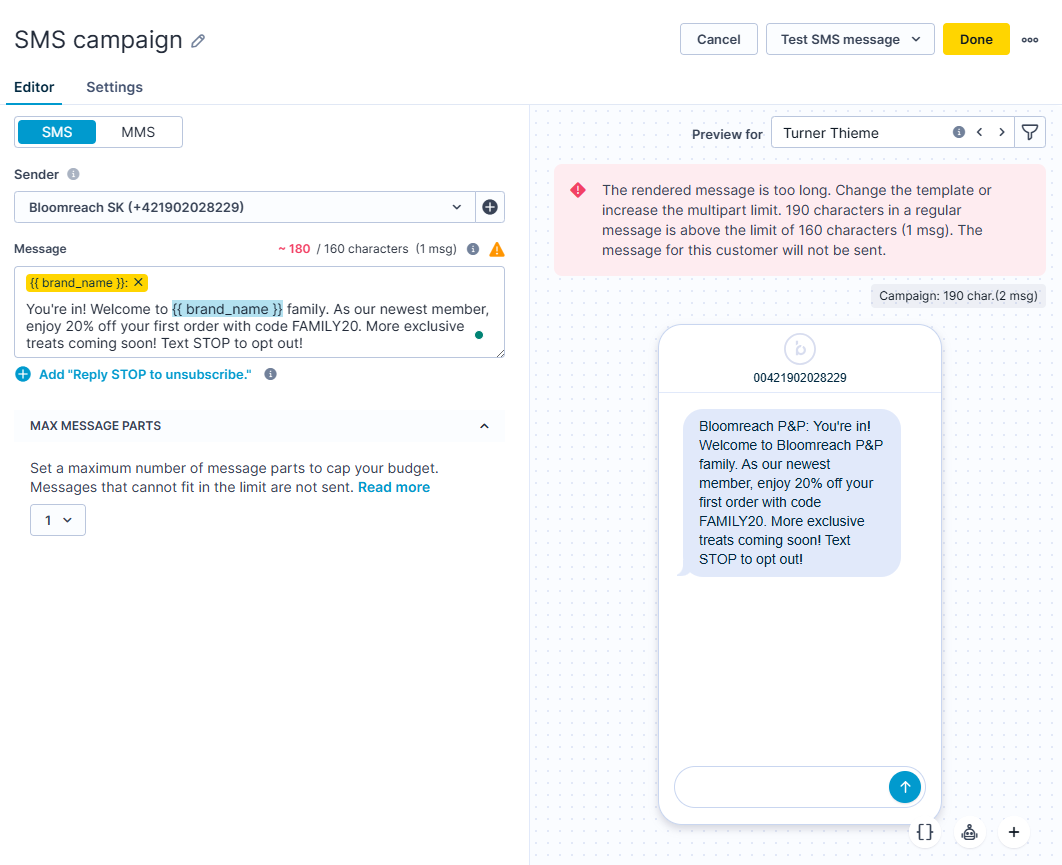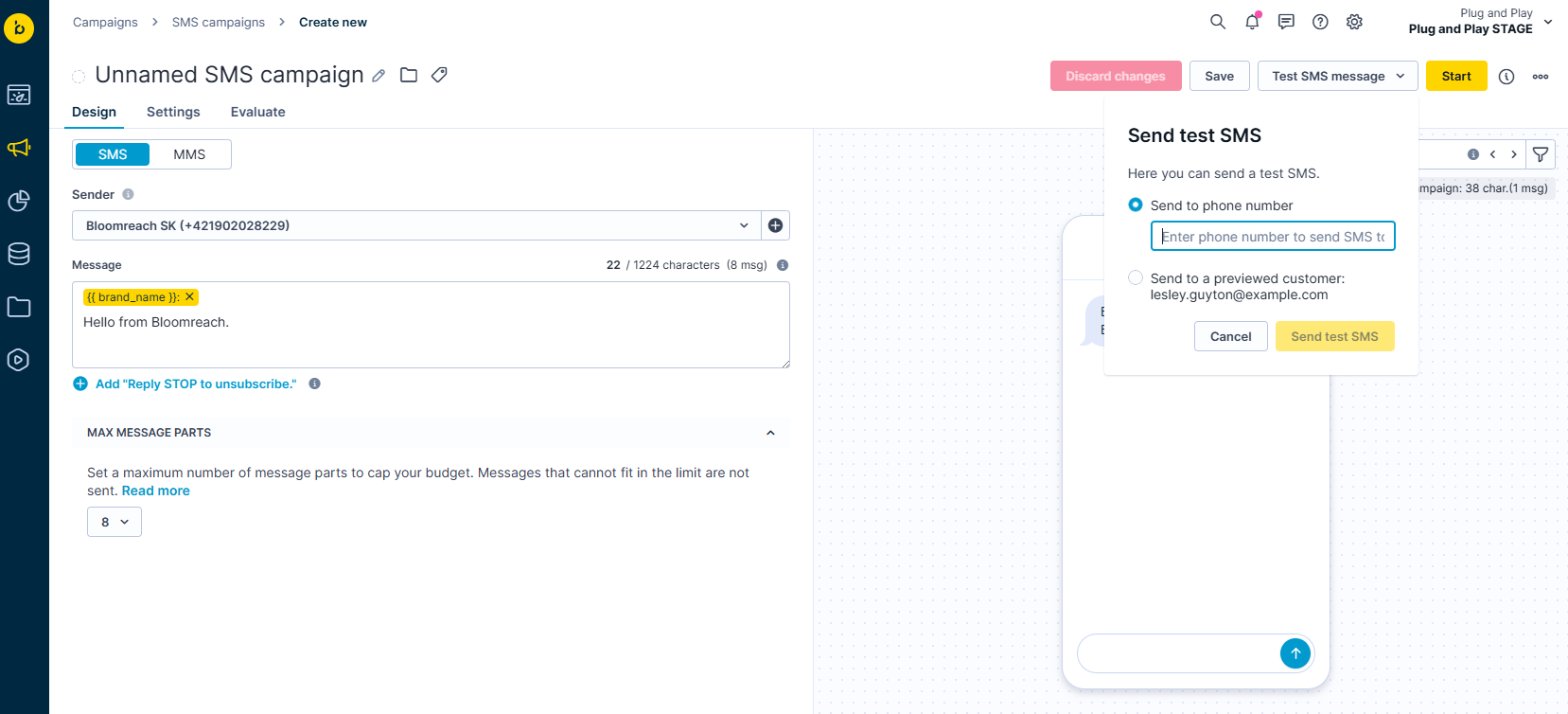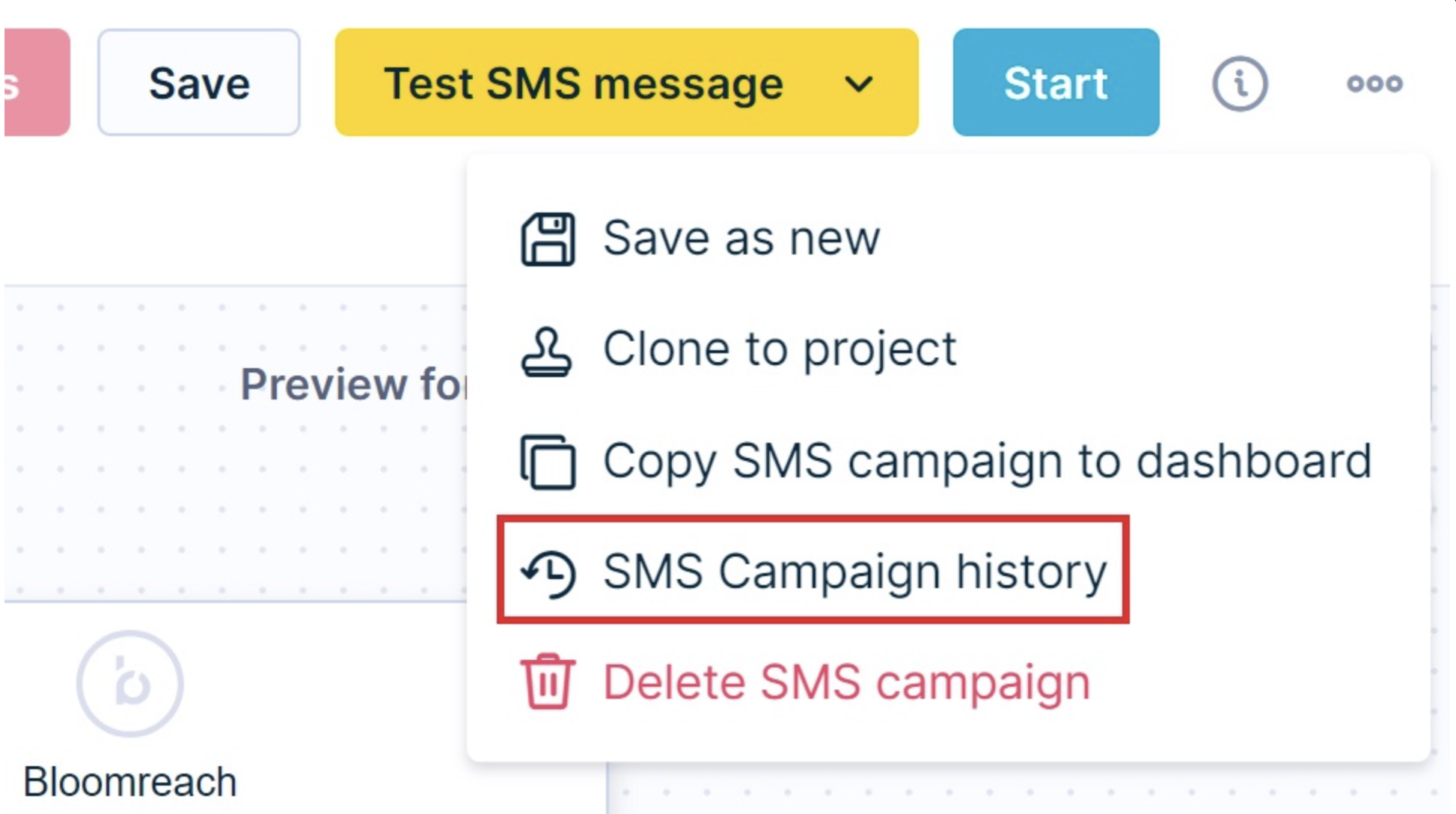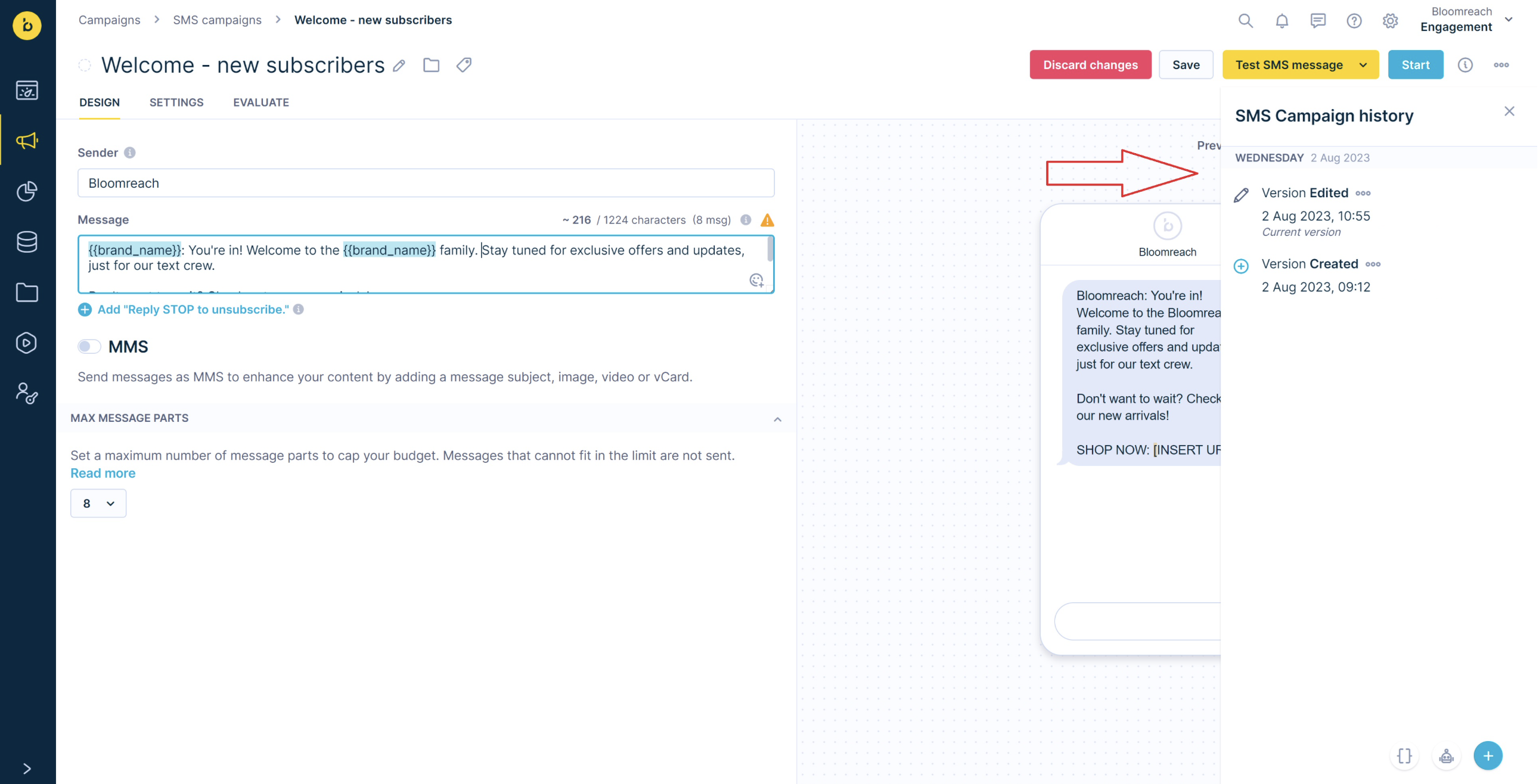SMS Campaigns module
Bloomreach Engagement lets you run personalized SMS campaigns for one-to-one communication with your customers. This article shows you how to set up a campaign in the SMS campaigns module.
For setup requirements like message size limits, sender profiles, and prerequisites, see our main SMS Campaigns.
Create your SMS campaigns
Create a new campaign
- Go to Campaigns > SMS Campaigns.
- Click + New SMS Campaign and select a template.
Choose the template
You can build your SMS campaign from scratch or use existing templates:
- Project templates: Custom templates you build in Asset Manager and reuse across campaigns.
- Predefined templates: Built-in library templates you can reuse for any campaign.
Customize template settings
Template settings are turned off by default. When you create a campaign using a template with enabled settings, they fill in automatically. This saves time - you don't need to configure the same settings repeatedly.
When you change templates in an existing campaign, you can apply the template settings or keep your current ones.
Write your message
Once you choose your template, customize the message for your needs:
- Choose your sender profile.
- Write your message in the editor.
- Add Jinja personalization if needed.
- Check the character counter and highlighted special characters.
- Set up fallback SMS with automatic message splitting.

For detailed information on message content, character limits, special characters, emojis, personalization, and multiple language versions, see our main SMS campaigns documentation.
Configure the settings
Access SMS campaign settings through Settings in the SMS campaigns module. Here's what you can configure.
Schedule your campaign
Choose when to send your SMS:
- Right after launching: Sends immediately when you start the campaign.
- Event-triggered: Sends every time a specific event happens for each customer.
- Scheduled: Sends on a specific day and time you choose.
- Optimal timing: Sends when the customer is most likely to click the SMS link.
Note
For event-triggered campaigns, you can use any events tracked in Bloomreach Engagement. See our System events documentation for the complete list.
Set frequency limits
Control how many SMS messages a customer can receive within a specific timeframe. This prevents message overload and maintains a good customer experience.
Choose consent requirements
Select which consent a customer needs to have to receive this campaign. This ensures you're following privacy regulations and customer preferences.
Set link and tracking options
Read the following articles for more information on:
- Link shortener: Automatically shortens all hyperlinks in SMS/MMS to save character space.
- Add links to SMS messages: Transfer identity to URL links for customer identification.
- UTM parameters: Configure link transformation settings for campaign tracking.
- Custom tracking: Add custom event attributes to track all campaign statuses.
Target your audience and set timing
- Define your audience: Use customer filters to choose exactly who receives your SMS campaign.
- Set silent hours: Pause campaign sending during specific times (like nighttime or weekends) to respect customer preferences.
Test the message
Always test your SMS before sending it to your full audience:
- Click Send test SMS in the editor.
- Choose your testing method:
- Send to a specific phone number (like your own).
- Send to the previewed customer.

This lets you see how your message looks and works before it goes live.
Launch the campaign
Once you've created your SMS campaign and made all necessary changes, you're ready to launch it.
Manage campaign versions
SMS campaigns include version history to help you track and restore changes.
Access version history
- Open your SMS campaign.
- Click on the three-dots menu.
- Select SMS Campaign history.

Use version history
- Preview historical changes for each version.
- Revert to a previous version if needed.
- Make a copy of any version.
- Restore deleted SMS campaigns from the campaigns list view.
This feature protects your work and lets you experiment without losing previous versions.

Track campaign performance
The SMS campaign module includes an evaluation dashboard with multiple metrics that indicate your SMS campaign's performance. You can analyze data for:
- SMS performance data
- Audience engagement rates
- Conversion funnel analysis
- Failed send reports
- Delivery statistics
Updated 7 months ago
